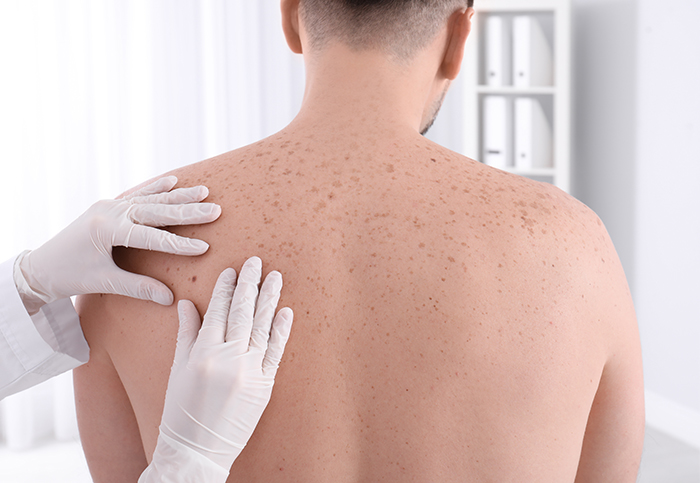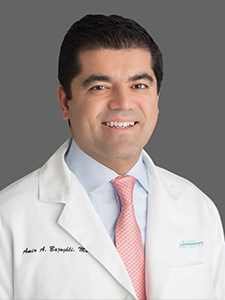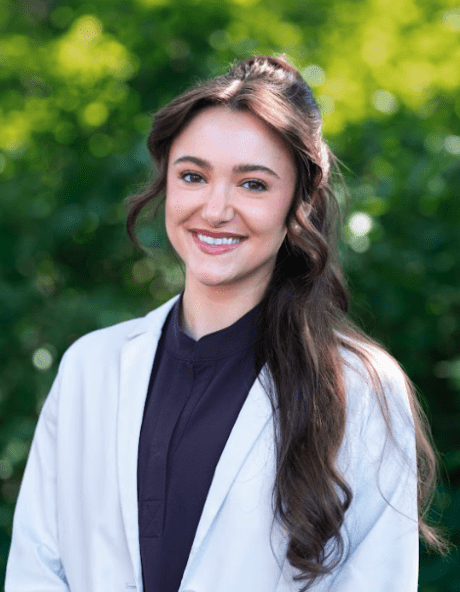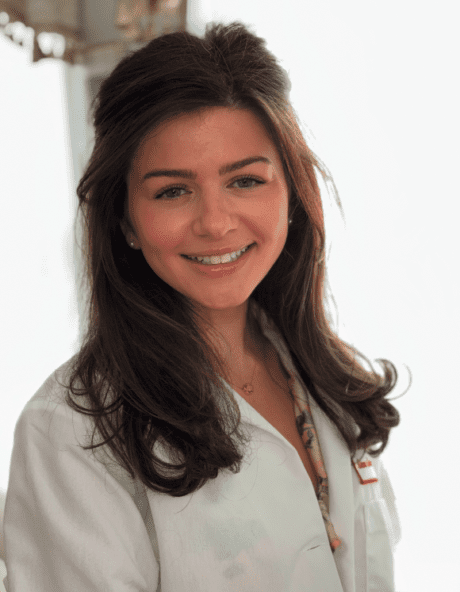Nevoid Basal Cell Carcinoma (NBCCS)
Nevoid Basal Cell Carcinoma (NBCCS) is also known as Gorlin syndrome. NBCCS is a rare hereditary disorder characterized by a wide variety of developmental abnormalities and a predisposition to developing certain forms of cancer. The severity and symptoms of the disorder can vary greatly amongst individuals. For example, skin cancers may develop in the first 10 years of a person’s life or they may not appear until the teenage years or adulthood. It is possible for individuals with NBCCS to develop a myriad of basal cell carcinomas from a young age, for which regular dermatological skin checks and care is recommended. There is a small chance that children with NBCCS will develop a rare brain cancer, called medulloblastoma. Depending on the symptoms of NBCCS experienced, a multidisciplinary approach between healthcare providers may be needed
What are common symptoms of NBCCS?
Common symptoms include the development of a type of skin cancer called basal cell carcinomas (hyperlink to page), recurrent tumors of the jaws, and skeletal malformations. Individuals with this disorder may also have distinctive physical features such as, but not limited to:
- Pitting in the palms of the hands or on the soles of the feet
- A large head size
- Prominent forehead
- Cleft palate
- Protruding jaw
- RIb abnormalities (bifid ribs)
What causes nevoid basal cell carcinoma syndrome?
NBCCS is a genetic condition and can be passed down in families. Most cases of NBCCS are caused by changes (mutations) in the PTCH gene. Research regarding other genes that may be involved, such as SUFU, is ongoing. Options exist for people interested in having a child when a prospective parent carries a gene mutation that increases the risk for this hereditary cancer syndrome. For more information, interested individuals should consult a reproduction specialist, genetic counselor, or primary care physician for discussing genetic counseling before becoming pregnant.
How common is NBCSS?
It is estimated that 1 in 40,000 people have NBCCS. As many as 30% of people with NBCCS do not have a family history of the condition.
How is NBCCS treated?
Treatment of NBCCS depends on the symptoms. For individuals who have the condition but do not develop cancer, it is recommended to regularly see a dermatologist for a skin check. The frequency of exams varies based on how many basal cell cancers or other skin problems a person has experienced. Individuals who have the condition and do develop cancer may see an oncologist for treatment. Individuals with NBCSS are prone to developing tumors in their jaws which require surgeries to be removed. Symptoms such as intellectual disability may be treated through specialized services to improve a person’s quality of life.
What are some of the ways to limit the development of skin cancers in individuals with NBCCS?
Due to the high risk for multiple skin cancers, especially in individuals with lighter skin tones, people with NBCCS should avoid sun exposure and take sun-protective measures when outside. Additionally, individuals with NBCCS should limit exposure to X-rays, to prevent further development of skin cancers.
Frequently Asked Questions
Our Providers
Dedicated Team
Skin & Laser Dermatology Center treats patients for all skin care concerns, including skin cancer surgery, cosmetic dermatology, sclerotherapy, laser peels, laser hair removal, hyperhidrosis, rosacea, and acne treatments.







